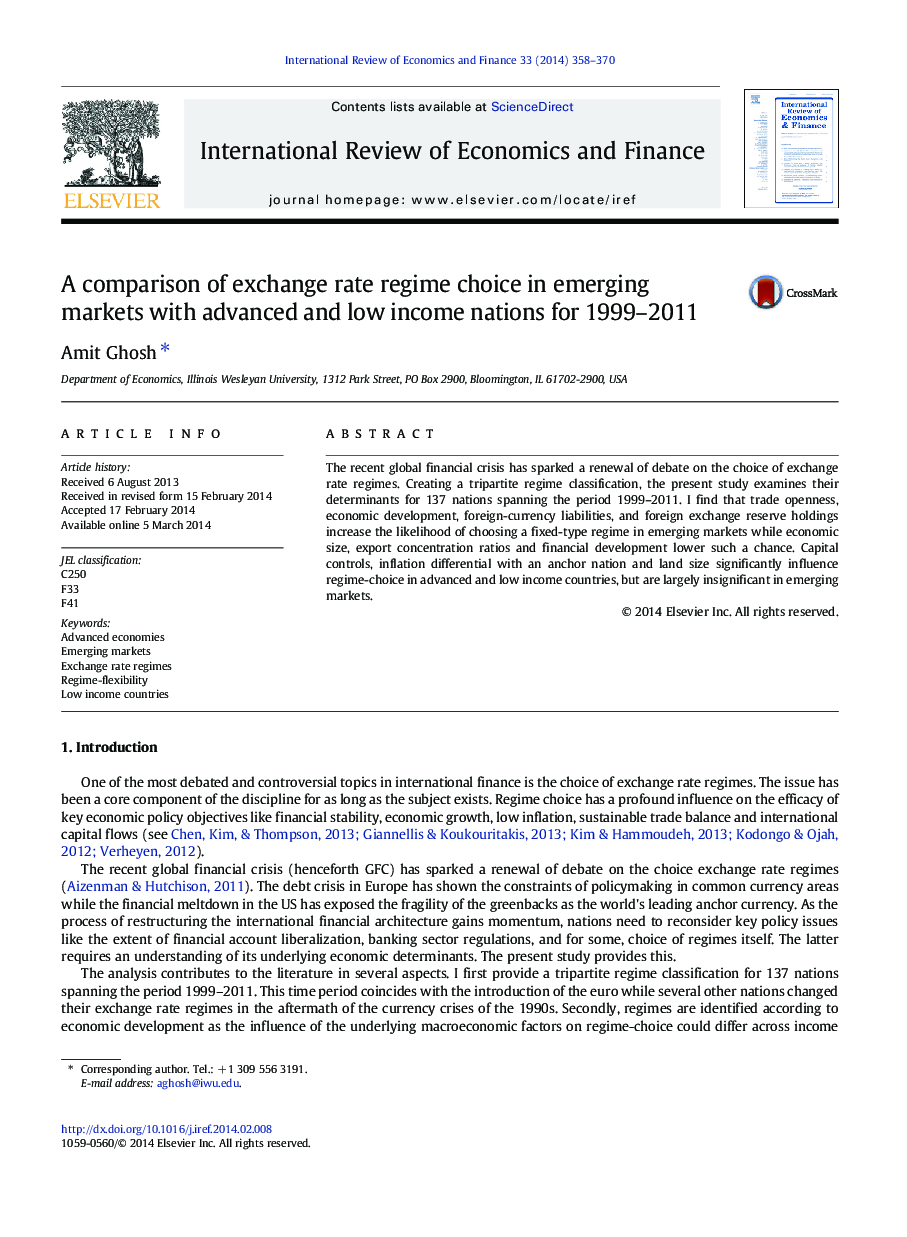| Article ID | Journal | Published Year | Pages | File Type |
|---|---|---|---|---|
| 5083500 | International Review of Economics & Finance | 2014 | 13 Pages |
â¢Creates classification of exchange rate regimes for 137 nationsâ¢Provides a comparative perspective across three different groups of nationsâ¢Employs different econometric techniquesâ¢Performs robustness checks with de facto measures of exchange rate flexibilityâ¢Regime choice is consistently influenced by conventional economic determinants.
The recent global financial crisis has sparked a renewal of debate on the choice of exchange rate regimes. Creating a tripartite regime classification, the present study examines their determinants for 137 nations spanning the period 1999-2011. I find that trade openness, economic development, foreign-currency liabilities, and foreign exchange reserve holdings increase the likelihood of choosing a fixed-type regime in emerging markets while economic size, export concentration ratios and financial development lower such a chance. Capital controls, inflation differential with an anchor nation and land size significantly influence regime-choice in advanced and low income countries, but are largely insignificant in emerging markets.
